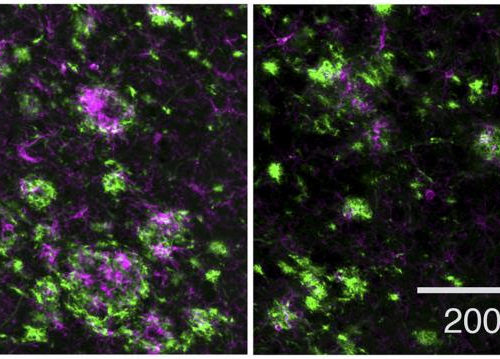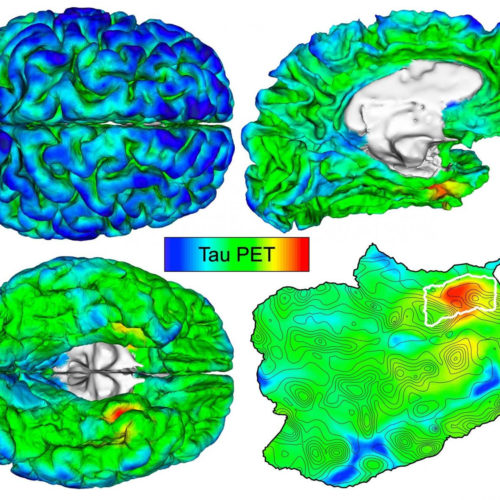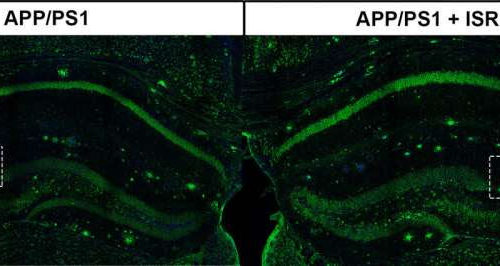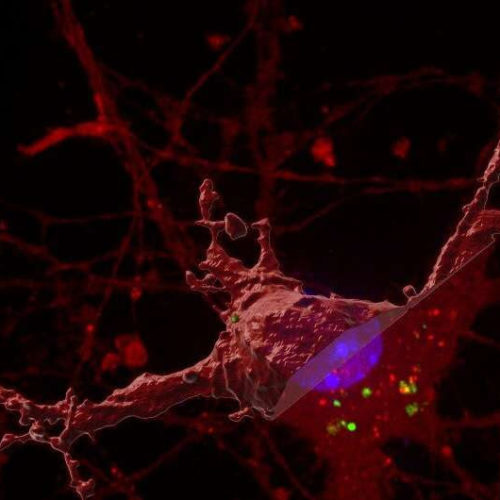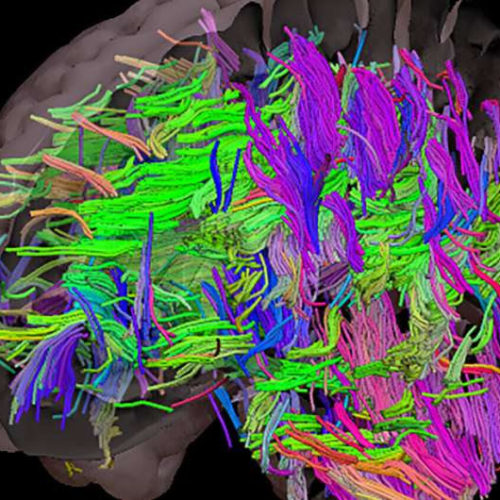CENTER FOR GENOMIC REGULATION IMAGE: MIREIA SEUMA (LEFT), FIRST AUTHOR OF THE STUDY AND RESEARCHER AT IBEC NEXT TO BENEDETTA BOLOGNESI (RIGHT), ONE OF THE LEAD AUTHORS OF THE STUDY AND JUNIOR GROUP LEADER AT IBEC. CREDIT: THE INSTITUTE FOR BIOENGINEERING OF CATALONIA, IBEC A study published in the journal eLife made all the possible mutations in...
Tag: <span>Alzheimer’s disease</span>
Artificial intelligence reveals current drugs that may help combat Alzheimer’s disease
MASSACHUSETTS GENERAL HOSPITAL BOSTON – New treatments for Alzheimer’s disease are desperately needed, but numerous clinical trials of investigational drugs have failed to generate promising options. Now a team at Massachusetts General Hospital (MGH) and Harvard Medical School (HMS) has developed an artificial intelligence-based method to screen currently available medications as possible treatments for Alzheimer’s...
Potential drug for Alzheimer’s disease prevention found safe and effective in animals
ROCKEFELLER UNIVERSITY PRESS IMAGE: Compared with a control (left), treatment with the novel GSM (right) reduces the number of amyloid plaques (green) and proinflammatory cells called microglia (magenta) in the brains of mice carrying mutations linked to early-onset Alzheimer’s disease. CREDIT: ©2021 RYNEARSON ET AL. ORIGINALLY PUBLISHED IN JOURNAL OF EXPERIMENTAL MEDICINE. HTTPS://DOI.ORG/10.1084/JEM.20202560 Researchers at the University of...
First-in-Human Clinical Trial to Assess Gene Therapy for Alzheimer’s Disease
Researchers at University of California San Diego School of Medicine have launched a first-in-human Phase I clinical trial to assess the safety and efficacy of a gene therapy to deliver a key protein into the brains of persons with Alzheimer’s disease (AD) or Mild Cognitive Impairment (MCI), a condition that often precedes full-blown dementia. The protein,...
Researchers find new way to diagnose potential for Alzheimer’s disease method less invasive, costly
by IOS Press Credit: Pixabay/CC0 Public Domain Early diagnosis of Alzheimer’s disease has been shown to reduce cost and improve patient outcomes, but current diagnostic approaches can be invasive and costly. A recent study, published in the Journal of Alzheimer’s Disease, has found a novel way to identify a high potential for developing Alzheimer’s disease before symptoms...
Automated imaging detects and tracks brain protein involved in Alzheimer’s disease
MASSACHUSETTS GENERAL HOSPITAL IMAGE: By mapping individuals’ unique brain anatomy, Massachusetts General Hospital researchers have identified early tau PET imaging signals to track Alzheimer’s pathology. Left: Tau PET images for a person with normal cognition. Right: top, 3D brain surface rendering with tau PET overlay; bottom, flat map showing brain surface details, with cortical tau...
Scientists find promising avenue to restore cognitive function impaired by Alzheimer’s disease
by New York University The compound ISRIB shrank plaques in the brain in a mouse model of Alzheimer’s disease (right, rectangle). Credit: M.M. Oliveira et al., Science Signaling (2021) A team of neuroscientists has identified a potential means to address the loss of cognitive function due to Alzheimer’s disease by targeting protein synthesis in mice. Their...
New discovery for how the brain ‘tangles’ in Alzheimer’s disease
by University of Queensland Credit: Dr. Juan Polanco et. al., The University of Queensland. University of Queensland researchers have discovered a new ‘seeding’ process in brain cells that could be a cause of dementia and Alzheimer’s disease. UQ’s Queensland Brain Institute dementia researcher Professor Jürgen Götz said the study revealed that tangled neurons, a hallmark sign of dementia,...
Obesity may exacerbate the effects of Alzheimer’s disease, new study shows
by University of Sheffield The brain with all the white matter tracts visible. White matter tracts are susceptible to damage in people with uncontrolled cardiovascular risks like obesity. Credit: The University of Sheffield New research from the University of Sheffield has found being overweight is an additional burden on brain health and it may exacerbate Alzheimer’s disease. The...
Discovery of early plasma biomarkers for Alzheimer’s disease
INSTITUT NATIONAL DE LA RECHERCHE SCIENTIFIQUE – INRS IMAGE: INRS PROFESSOR CHARLES RAMASSAMY, SPECIALIST ON ALZHEIMER’S DISEASE, DOCTORAL STUDENT MOHAMED RAÂFET BEN KHEDHER AND POSTDOCTORAL STUDENT MOHAMED HADDAD. CREDIT: INRS A Quebec research team has discovered two early plasma markers to detect Alzheimer’s disease five years before its onset. The results of this recent study led by...


